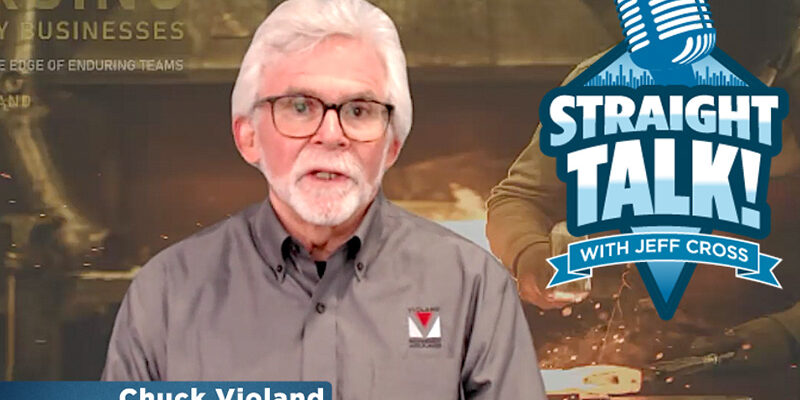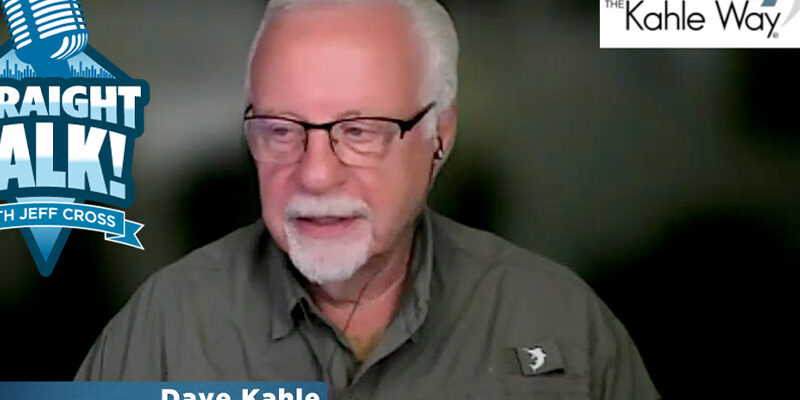In Praise of Janitors

When I was in my mid-thirties, I was working with Butch Balaun, a customer who owned several successful restaurants in our area. On one occasion, during a routine sales call, I was told I could find him in the kitchen. What I discovered was a very successful business owner up to his elbows in a grimy mess from cleaning out the kitchen’s grease trap. In his characteristically gruff delivery, he commented, “You know, Chuck, it doesn’t matter what our title is—we’re all janitors. We’re always cleaning up messes.” Truer words were never spoken!
It’s easy to think that being the boss entitles us to a “get out of jail free” card when it comes to cleaning up messes. Because of our title we may feel we’re somehow above having to clean them up, whether they’re our own mess or someone else’s. It doesn’t. In fact, I’m convinced that when you’re handed the keys to the executive restroom in one hand, you’re given the handle to a mop in the other—personalized with your initials. It seems the higher you perch on your company’s organizational chart, the bigger the messes can be. We become responsible for cleaning up not just our own messes but those of the people who report to us.
This gets complicated, and the messes grow larger, when you consider that entrepreneurs are notoriously conflict avoiders. We try to convince ourselves that if we ignore a mess long enough, it will magically clean itself up. But this rarely happens. Instead, the messes just get messier and take longer to clean up when we eventually do.
When you’re the boss you can’t just wash your hands of a mess, and there’s no sense pointing fingers, blaming others, or looking for scapegoats. When you’re the boss, you own the mess, and you quickly discover that, contrary to popular belief, messes flow uphill. Sooner or later, they’re going to end up in your lap.
My old customer Butch wasn’t the only one who understood the importance of being the janitor. On a more recent level, I don’t need to look any further than someone I worked with for years—Nick Paolella.
Many of you know of my years-long involvement with Jon-Don, and many of you knew Nick as one of the owners of that very successful company. What you may not know is how seriously Nick took the whole concept of serving others and his role as “head janitor.”
Nick attended all the Jon-Don Strategies for Success programs that I instructed with Bill Yeadon and Steve Toburen. On one particular occasion, Nick’s flight caused him to arrive late, so we weren’t able to introduce him as the owner of the company. He arrived during the lunch break while everyone else was eating, promptly grabbed a trash can and washcloth, and proceeded to bus the seminar room to ready it for the afternoon session. While some of the people knew who he was, many did not. They just figured he was a retired janitor Jon-Don had brought in to help out for the day. It was only the following day when he was introduced as the owner of the company that everyone realized who Nick was. Looking in their eyes, you knew an important lesson had been learned: Even when you’re the head of a large successful company, you’re still a janitor
It’s easy for us to feel demeaned when we’re called on to clean up after someone else, but viewed another way, it’s actually a privilege. Nothing says “servant leader” like cleaning up a mess. What’s more, cleaning up your own mess sets a good example, making it a whole lot easier to insist that others clean up theirs.
The next time someone asks you what you do for a living or what your title is, tell them with pride that you’re the janitor and you specialize in cleaning up messes.












